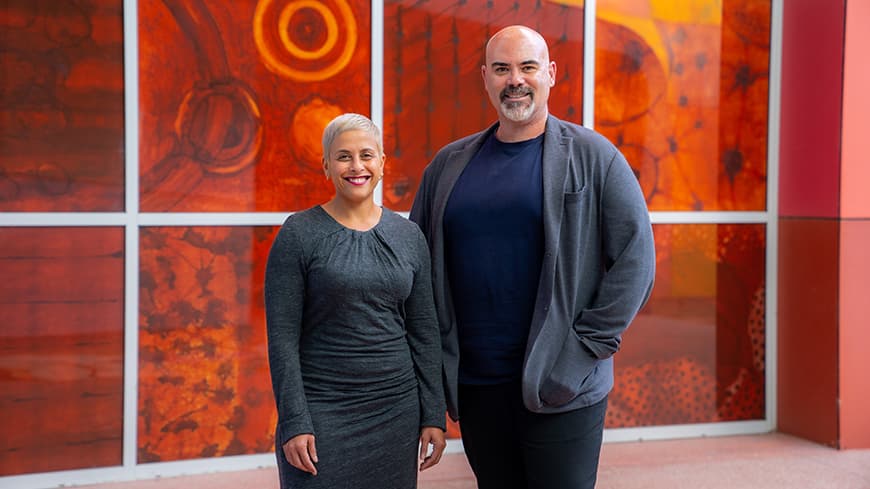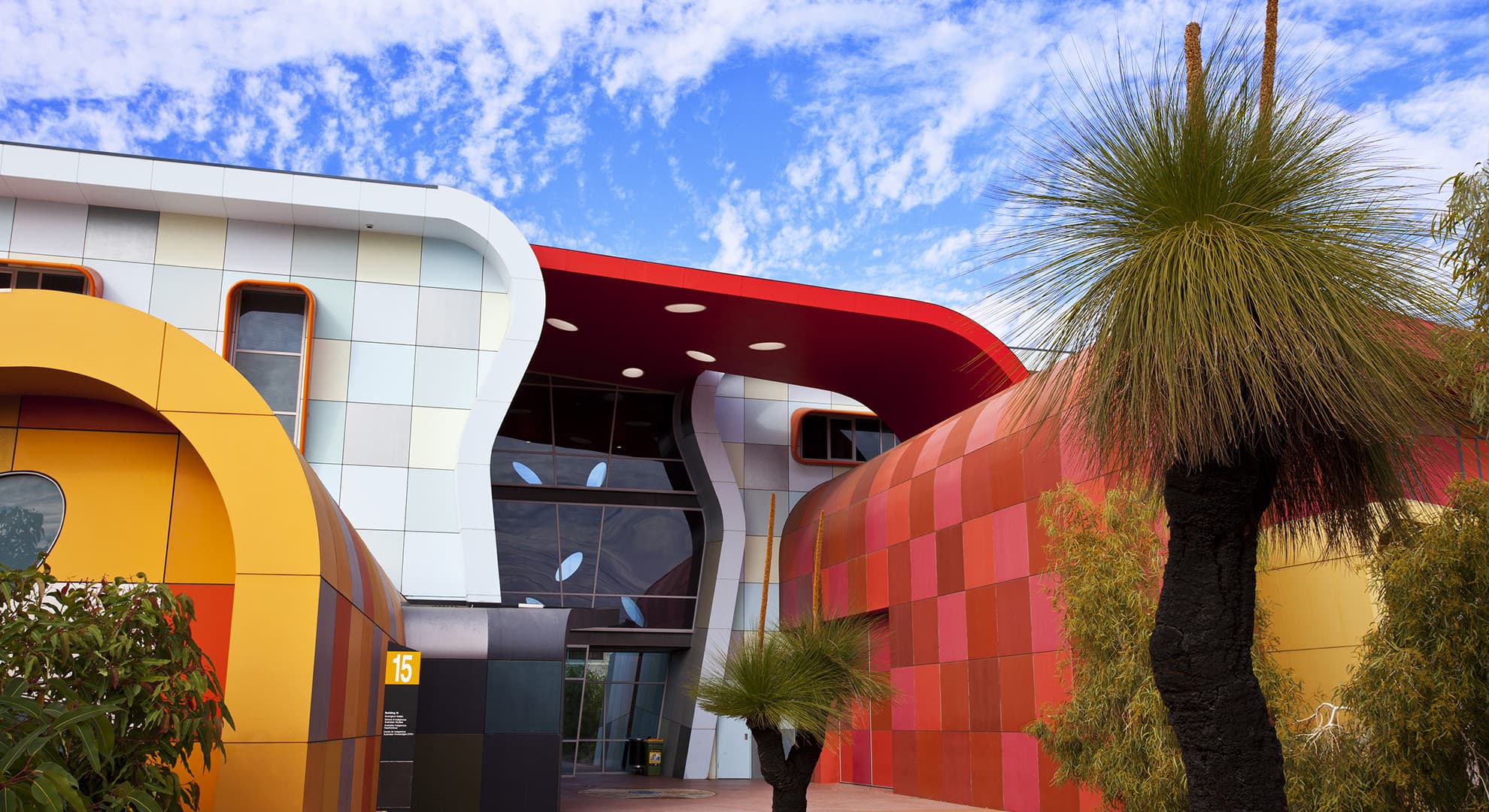
It will add just 30 minutes to a routine infant health check, but is set to give lifelong benefits to children in our Indigenous communities.
Edith Cowan University (ECU) was recently awarded a $3 million National Health and Medical Research Centre (NHMRC) Clinical Trials and Cohort Studies 2021 grant. It aims to give Aboriginal children the best possible start to life.
Spanning five years, the research team will implement the Care for Child Development (CCD) program, which the World Health Organization and UNICEF have used to positive effect internationally.
It sees health providers trained to offer appropriate advice to caregivers on play, responsive stimulation, mother-child interaction, and maternal depression, starting from the first month of their child’s life.
ECU’s Director of Aboriginal Research Associate Professor Dan McAullay will lead the team, which includes experts from King’s College London, University of Melbourne, Monash University, King Edward Memorial Hospital for Women, Murdoch University and Telethon Kids Institute.
Professor McAullay said the grant would significantly help address a prevalent issue in the Aboriginal community.
“Almost one in three Aboriginal children start school in Western Australia with at least two developmental vulnerabilities,” he said.
“The long-term effects of having poor early child development means children don’t live up to their potential. That then influences their educational attainments, and their social and emotional wellbeing going into adulthood.
“Despite this, there has been no primary healthcare-delivered early child development program starting in the first four weeks of life.”
The most recent CCD program trial overseas in Pakistan found it resulted in substantial improvements at 12 and 24 months in cognitive child development compared to children who hadn’t undergone the program.
ECU Kurongkurl Katitjin Senior Research Fellow Dr Natalie Strobel said the program would be included in regular health checks run by health staff and Aboriginal health workers within the Child and Adolescent Health Service and would start in the child’s first year of life.
“It will only take about an extra 30 minutes and will give parents and families extra education and feedback on what they can be doing with their children to improve their cognitive learning and their speech and language, but also to foster that development.
“We’ll also support mothers’ mental health, as that can be linked to how receptive they are to their baby’s needs.
“If the program is shown to be effective, there is potential for it to be embedded as part of their standard care practice moving forward.”
Future opportunities await
Professor McAullay said his experienced team at ECU had identified many opportunities for improvements in the way research was conducted with Noongar people and Aboriginal people on Noongar country.
“We have completed the first formal strategy for research with the Noongar community and Aboriginal people on Noongar country, by identifying priorities for future research through consultation, and workshops with key stakeholders,” Professor McAullay said.
“We engaged stakeholders from universities, medical research institutes, government and non-government agencies, and communities.
“This strategy will support ECU’s research and engagement with community and organisations to help deliver high quality research on Noongar country.”
Choose your research pathway
Professor McAullay said there are many different pathways to starting a research career for Aboriginal and Torres Strait Islander people at ECU.
“This includes after completing your undergraduate degree – or if you are already in your chosen field of work there are ways we can support your entry into research,” he said.
“We have opportunities here at ECU not just in health but in a variety of areas including education, business, and social sciences to name a few.”
It’s never too late to start
Professor McAullay said high quality Aboriginal research is an ever-evolving focus for his team at ECU.
“We are part of the National Network for Aboriginal and Torres Strait Islander Health Researchers and collectively we are working together to improve HDR pathways, and research support for Aboriginal students.”
If you are interested in kick starting your research career, contact ECU at kk@ecu.edu.au
Take the first step toward your future. To find out more, visit www.ecuworldready.com.au/indigenous
 ECU's Kurongkurl Katitjin has been awarded new NHMRC funding
ECU's Kurongkurl Katitjin has been awarded new NHMRC funding



